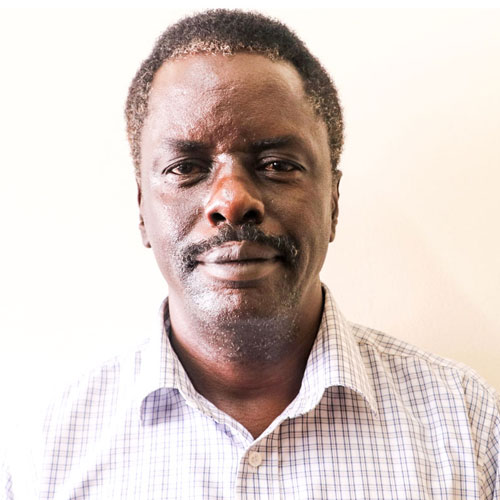
Aloysius Mutebi, MPH
Department: Health Policy Planning and Management
PhD Topic: Effect of district splitting (district creation) on district human resources for health management in Uganda
Description: Aloysius’s work focuses on acquisition and maintenance of human resources (recruitment, retention, relocation) plus performance and coping/adaptation strategies after the district split occurs. His outcomes include intended consequences of splitting and unintended consequences after splitting. His work will generate advice to politicians and technocrats/ policy makers (Ministry of Health) and district leaders on how to address these problems that arise after district splitting occurs.
Supervisors
- Assoc. Prof. Elizeus Rutebemberwa, Department of Health Policy Planning and Management, Makerere University School of Public Health, Kampala, Uganda.
- Assoc. Prof. Fredrick Edward Makumbi, Department of Epidemiology and Biostatistics, Makerere University School of Public Health, Kampala, Uganda.
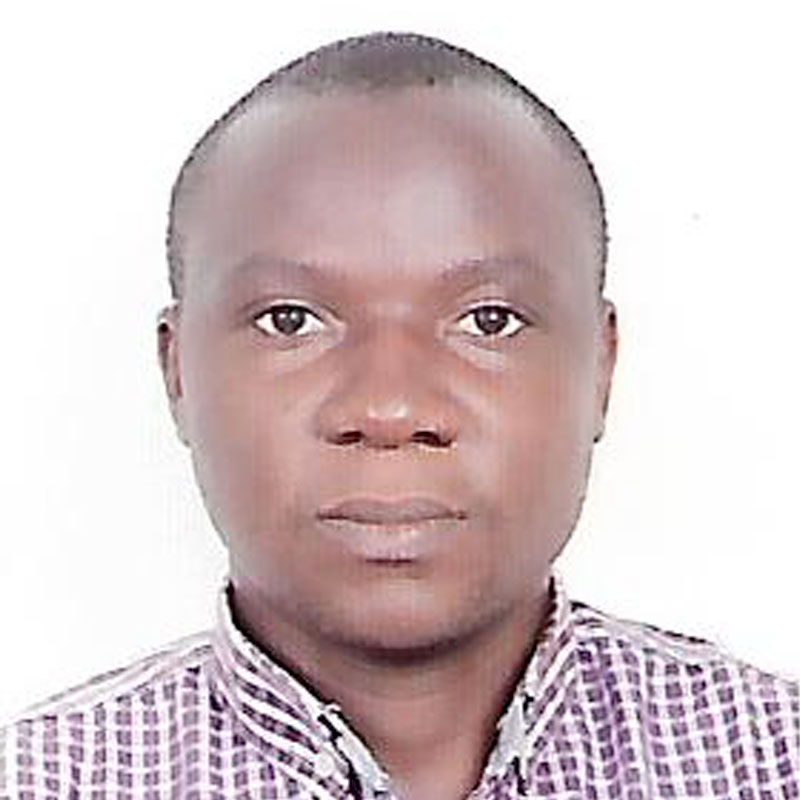
Moses Mukuru, MA
Department: Health Policy Planning and Management
PhD Topic: An analysis of evolutions in maternal health policies and implementation adaptations in Uganda during the MDG period
Description: Moses’ work focuses on maternal health policies in Uganda in the context of missed MDG targets and persistently high maternal deaths. As Uganda embarks on achieving the ambitious SDG targets for maternal health, his work will highlight the key policy and practice aspects that need to be the focus of reforms in order to accelerate reduction in the currently high maternal deaths.
Supervisors
- Assoc. Prof. Freddie Ssengooba, Department of Health Policy Planning and Management, Makerere University School of Public Health, Kampala, Uganda
- Dr. Suzanne Kiwanuka, Department of Health Policy Planning and Management, Makerere University School of Public Health, Kampala, Uganda
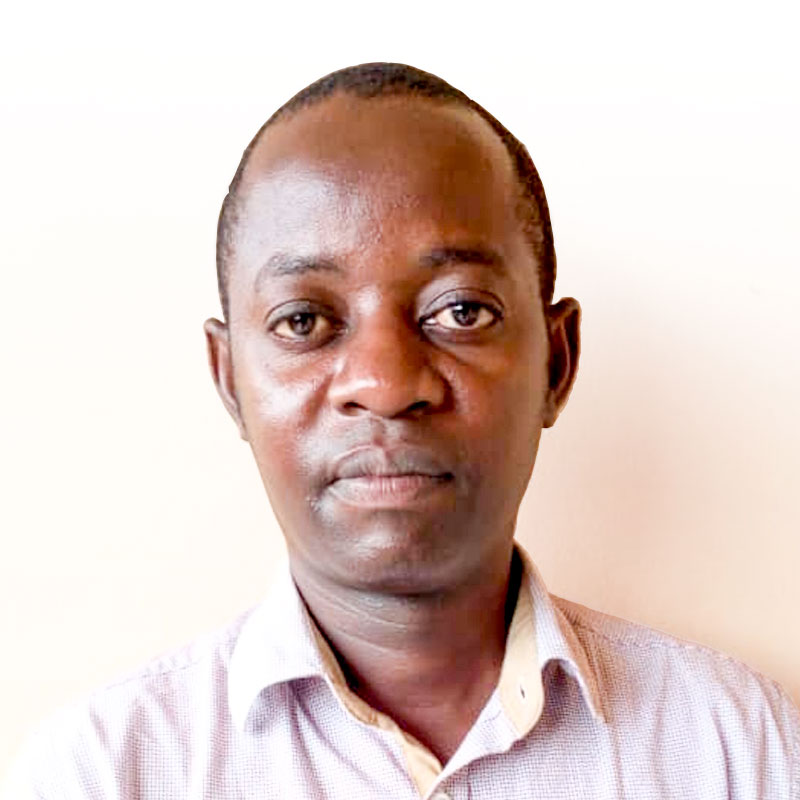
Abbey Kauma Ssevume, MPH
Department: Community Health and Behavioural Sciences
PhD Topic: Parental influence on adolescent sexual behavior: effect of motivational interviewing intervention in Wakiso district, Uganda
Description: Abbey’s work focuses on parental influence on adolescent sexual behavior and the effect of motivational interviewing intervention in Wakiso district, Uganda. Parent-adolescent communication is an important source for influencing adolescents’ healthy sexual behavior, but the role of parents in the lives and decision-making processes of adolescents is often underestimated, and their abilities to influence children’s sexual behavior have been modest, yet they are the primary care takers of these adolescents. His study is aimed at learning how to help parents to improve their abilities to influence their adolescents’ sexual behavior.
Supervisors
- Assoc. Prof. Fredrick Edward Makumbi, Department of Epidemiology and Biostatistics, Makerere University School of Public Health, Kampala, Uganda
- Dr. David Kaawa Mafigiri
- Dr. Elizabeth Nabiwemba, Department of Community Health and Behavioural Sciences, Makerere University School of Public Health, Kampala, Uganda
- Dr. Martin B. Spray
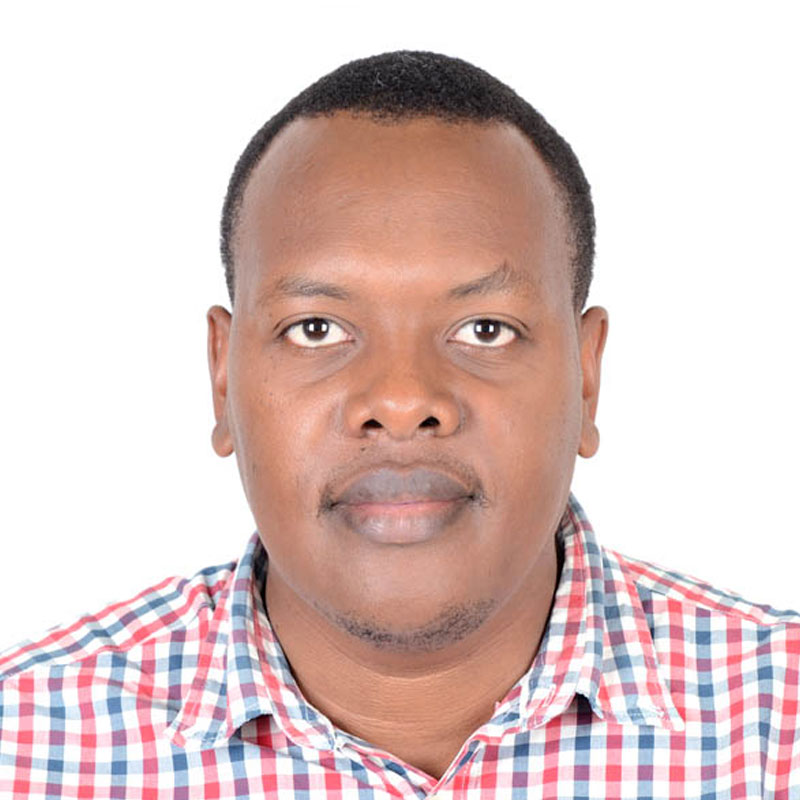
Arthur Bagonza, MPH
Department: Community Health and Behavioral Sciences
PhD Topic: Feasibility and effectiveness of peer supervision on rational drug use among registered private drug shops in Busoga region, Uganda: a quasi-experimental study
Description: Arthur’s work is on feasibility and effectiveness of peer supervision on rational drug use among registered private drug shops in Busoga region, Uganda. The traditional government method of supervising drugs shops seems to be infrequent and inadequate because of the many health systems challenges. His work seeks to find alternative ways of effectively supervising the private sector drug shops.
Supervisors
- Dr. Henry Wamani, Department of Community Health and Behavioural Sciences, Makerere University School of Public Health, Kampala, Uganda
- Prof. Stefan Swartling Peterson, UNICEF.
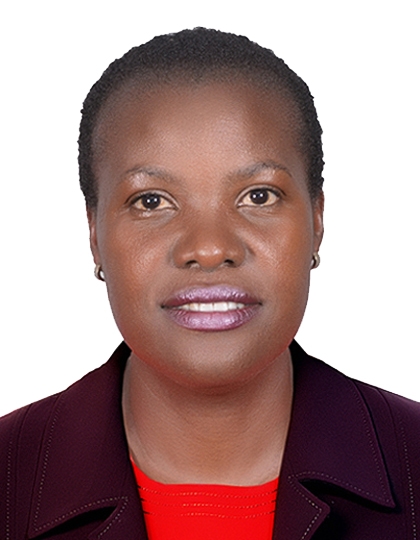
Barbara Marjorie Nanteza, MPH
Department: Disease Control and Environmental Health
PhD Topic: Correlates of Uptake of Safe Male Circumcision in Gulu, Northern Uganda
Description: Barbara’s is focusing on correlates of uptake of Safe Male Circumcision (SMC) in Gulu, Northern Uganda. SMC was recommended by UNAIDS and WHO after scientific evidence from three clinical trials. Research then suggested that if any country was to achieve a public health benefit from SMC, 80% of its eligible males should be circumcised. Gulu in Northern Uganda has an HIV prevalence of 12.8% which is higher than the national average yet its SMC coverage is really below the national (6.0%) coverage. Her work seeks to understand the factors that influence SMC uptake in this region.
Supervisors:
1. Assoc. Prof. Fredrick Edward Makumbi, Department of Epidemiology and Biostatistics, Makerere University School of Public Health, Kampala, Uganda
2. Prof. David Serwadda, Department of Disease Control and Environmental Health, Makerere University School of Public Health, Kampala, Uganda
3. Prof. Ronald Gray, Johns Hopkins University, Baltimore, USA
Richard Muhindo, MPH
Department: Epidemiology and Biostatistics
PhD Topic: Regular STI and HIV screening intentions and practices among female sex workers (FSWs) in Uganda: the effect of peer educational empowerment and mobile phone SMS reminders
Description: Richard’s work focuses on understanding the psycho-social influences of regular STI and HIV screening and the screening intentions among female sex workers as well as the effectiveness of peer educational support & SMS reminders. Specifically, he intends to: (1) describe STI and HIV screening intentions and screening practices among FSWs in Uganda; (2) describe the psychosocial predictors of STI and HIV screening intentions and screening practices among FSWs; (3) to explore the facilitators, preferences, and barriers to regular STI and HIV screening among sex workers; and (4) to evaluate the effect of FSW-led peer education and mobile phone message reminders on the uptake of regular STI and HIV screening services
Supervisors:
- Dr. Edith Nakku-Joloba, Department of Epidemiology and Biostatistics, Makerere University School of Public Health, Kampala, Uganda
- Assoc. Prof. Nazarius Mbona Tumwesigye, Department of Epidemiology and Biostatistics, Makerere University School of Public Health, Kampala, Uganda
- Assoc. Prof. Fred Wabwire-Mangen, Department of Epidemiology and Biostatistics, Makerere University School of Public Health, Kampala, Uganda

Doris Kwesiga, MHSR
Department: Health Policy, Planning and Management
PhD Topic: Understanding factors that influence reporting of pregnancy and adverse pregnancy outcomes in population and health surveys
Description: Doris’ work focusses on reporting of pregnancy and pregnancy related outcomes in routinely surveyed populations. The Lancet report on every Newborn series in 2014 highlighted that about one third of 137 million births globally and nearly all neonatal deaths and stillbirths went unregistered. Yet, many countries rely on Demographic and Health Surveys (DHS) and Health and Demographic Surveillance Systems (HDSS). This demonstrates challenges such as undercounting and incomplete data in the capture of information and reporting of pregnancy and adverse pregnancy outcomes with the methodologies currently used in the DHS and HDSS sites. This under-reporting makes it harder to find out the causes of adverse pregnancy outcomes and how to potentially avoid them in the future and to put better interventions and policies in place. Doris hopes to unearth these factors across different contexts.
Supervisors:
- Assoc. Prof. Peter Waiswa, Department of Health Policy, Planning and Management, Makerere University School of Public Health, Kampala, Uganda
- Prof. Christopher Orach Garimoi, Department of Community Health and Behavioural Sciences, Makerere University School of Public Health, Kampala, Uganda
- Prof. Hannah Blencowe
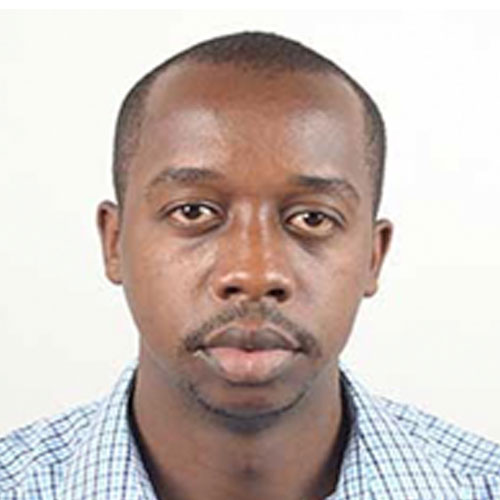
Charles Ayume, MPH
Department: Health Policy, Planning and Management
PhD Topic: Expiry of medical communities in Central Uganda: Quantifying financial loss, causes, and management.
Description: Charles’s work focuses on expiry of medical commodities in Central Uganda and quantification of financial losses, causes, and management. Specifically, he will: (1) quantify expired medical commodities; (2) assess their monetary value; (3) establish the causes of expiries and (4) assess how expired items are managed at all levels.
Supervisors:
- Prof. Odoi Adome, School of Health Sciences, Makerere University College of Health Sciences, Kampala, Uganda
- Assoc. Prof. Peter Waiswa, Department of Health Policy, Planning and Management, Makerere University School of Public Health, Kampala, Uganda
- Dr. Elizabeth Ekirapa-Kiracho, Department of Health Policy, Planning and Management, Makerere University School of Public Health, Kampala, Uganda
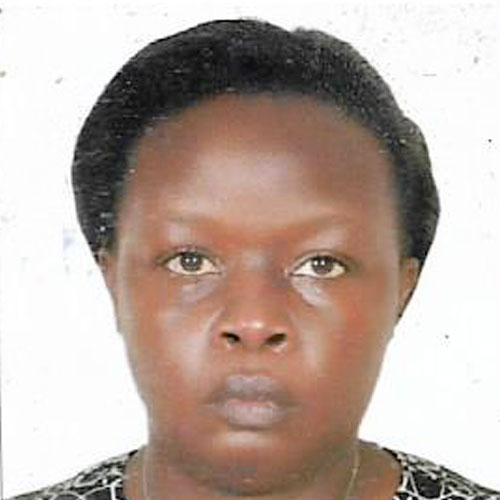
Apophia Agiresaasi, MSc.
Department: Epidemiology and Biostatistics
PhD Topic: Factors associated with alcohol consumption and Effect of a Communication Intervention on pregnant women consuming alcohol in post-conflict northern Uganda
Description: Apophia’s work focusses on establishing the magnitude of the alcohol use during pregnancy and associated factors in post-conflict northern Uganda. She will also explore perceptions on maternal alcohol use and implement a communication intervention to increase risk perception and knowledge on dangers of maternal drinking.
Supervisors:
- Assoc. Prof. Nazarius Mbona Tumwesigye, Department of Epidemiology and Biostatitics, Makerere University School of Public Health, Kampala, Uganda
Prof. Goretti Nassanga, Makerere University, Kampala, Uganda

Celestin Banamwana, MSc.
Department: Disease Control and Environmental Health
PhD Topic: Utilization of Ecological sanitation technology and microbial risks among users of its products in Burera district, Rwanda
Description: Celestin’s work is focusing on the utilization of Ecological sanitation toilets (Ecosan) which has been reported to be low in different geographical settings, yet its replication is critical in low and middle-income countries. He is also looking at microbial risks among users of Ecosan products which could be a barrier to its utilization especially in agriculture. His findings will support interventions on behavior change towards Ecosan in Rwanda and provide future direction on effective utilization of Ecosan toilets.
Supervisors:
- Assoc. Prof. Nazarius Mbona Tumwesigye, Department of Epidemiology and Biostatistics, Makerere University School of Public Health, Kampala, Uganda
- Dr. David Musoke, Department of Disease Control and Environmental Health, Makerere University School of Public Health, Kampala, Uganda
- Prof. Theoneste Ntakirutimana, School of Public Health, University of Rwanda, Kigali, Rwanda.

Jimmy Osuret, MPH
Department: Disease Control and Environmental Health
PhD Topic: Child pedestrian injury risk factors, Vulnerability, Coping Capacity and Effectiveness of injury prevention interventions: Implications for child pedestrian interventions in Uganda
Description: Jimmy’s work is focusing risk factors, underlying vulnerabilities coping capacities, and effectiveness of child pedestrian interventions in LMICs. The findings have implications for identifying pathways that will guide decision-making throughout the entire process, from identifying the problem to planning and implementing sustainable child pedestrian injury prevention programmes.
Supervisors:
- Assoc. Prof. Lynn Atuyambe, Department of Community Health and Behavioural Sciences, Makerere University School of Public Health, Kampala, Uganda
- Dr. Ashley Van Niekerk, Violence Injury and Peace Research Unit South African Medical Research Council, South Africa
- Dr. Victoria Nankabirwa, Department of Epidemiology and Biostatistics, Makerere University School of Public Health, Kampala, Uganda
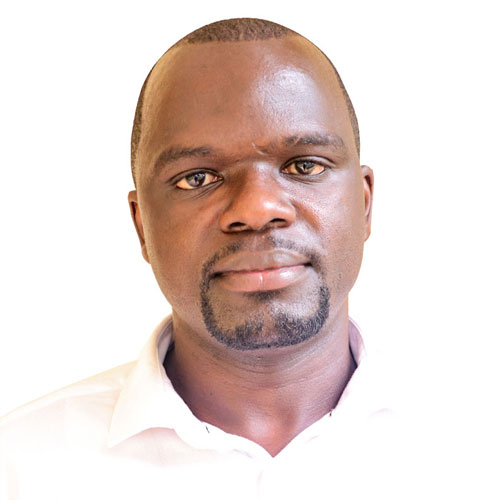
Charles Ssemugabo, MPH
Department: Disease Control and Environmental Health
PhD Topic: Health risk assessment of pesticide residues in fruits and vegetables among consumers in central Uganda – using the “from farm to fork” principle
Description: Charles’ work is focusing on estimating the health risks associated with dietary exposure to pesticide residues in fruits and vegetables in central Uganda using the “from farm to fork” principle. To achieve this, he will establish the concentrations of pesticide residues in fruits and vegetables and use the pesticide residue concentration and fruits and vegetable intake data to assess possibilities of risk. He will also assess how the pesticide concentrations reduce or increase as the fruits and vegetables move from the farm to fork by tracking them along the chain. His findings will inform interventions aimed at safe pesticide use in food production.
Supervisors:
-
Prof. David Guwatudde, Department of Epidemiology and Biostatistics, Makerere University School of Public Health, Kampala, Uganda
- Dr. John C. Ssempebwa, Department of Disease Control and Environmental Health, Makerere University School of Public Health, Kampala, Uganda
Prof. Asa Bradman, Center for Environmental Health and Children’s Health, School of Public Health, University of California Berkeley, USA
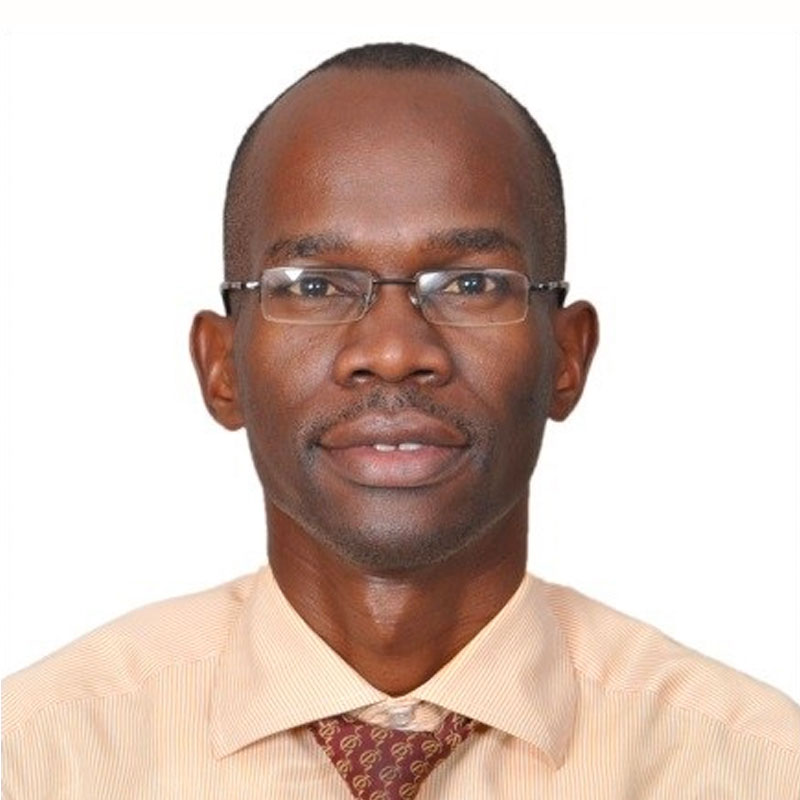
David Lubogo, MPH
Department: Community Health and Behaviour Science
PhD Topic: Metabolic Syndrome in females of reproductive age: Associated factors and effectiveness of a nutrition-promotion intervention in South Central Uganda
Description: David’s work is focusing on establishing prevalence and factors associated with metabolic syndrome (MetS). He will also evaluate the effect of a nutrition education intervention among females of reproductive age with MetS in South Central Uganda. MetS is a problem of public health importance and manifests with gender differences in women. MetS also presents impacts on obstetric and perinatal outcomes as well as on maternal health. His findings are expected to inform policy and to guide interventions to address non-communicable diseases among women in Uganda.
Supervisors:
- Prof. Christopher Garimoi Orach, Department of Community Health and Behavioural Sciences, Makerere University School of Public Health, Kampala, Uganda
- Dr. Henry Wamani, Department of Community Health and Behavioural Sciences, Makerere University School of Public Health, Kampala, Uganda
- Assoc. Prof. Lynn Atuyambe, department of Community Health and Behavioural Sciences, Makerere University School of Public Health, Kampala, Uganda

Esther Bayiga, MSc.
Department: Disease Control and Environmental Health
PhD Topic: Pedestrian safety in the built environment of the Kampala Metropolitan Area
Description: Since road traffic injuries are among the top 10 causes of death globally, and that in Uganda the pro-portion of road user fatalities that are pedestrians is very high; over 40% compared to 22% globally. Esther will study the effect of the built environment on pedestrian safety in the Ugandan setting.
Supervisors:
- Dr. David Guwatudde, Department of Epidemiology and Biostatistics, School of Public Health, Makerere University, Uganda
- Dr. Khayesi Meleckidzedeck, World Health Organization
- Dr. Milton Mutto, Department of Disease Control and Environmental Health, School of Public Health, Makerere University, Uganda
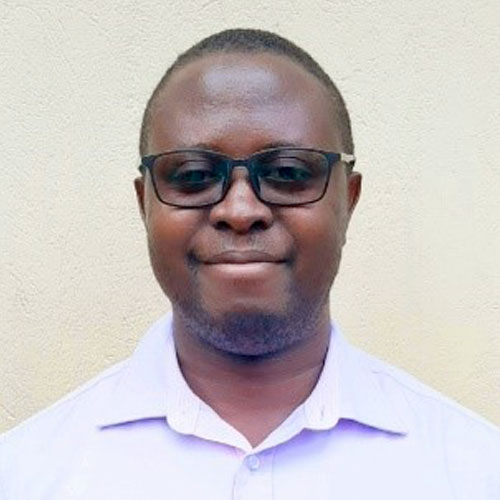
Francis Xavier Kasujja, MSc
Department: Epidemiology and Biostatistics
PhD topic: Type 2 Diabetes testing in eastern Uganda: a contextualized evaluation of available point-of-care tests
Description: Francis’ work will focus on assessing the performance of the Fasting Plasma Glucose test (FPG), the gycated haemoglobin test (HBA1C), and the Finnish Diabetes Risk Score (FINDRISC) in screening for type 2 diabetes. The study will also evaluate the association between the FPG and HBA1C levels with asymptomatic malaria.
Supervisors:
- Dr. Fred Nuwaha Ntoni, Department of Disease Control and Environmental Health, School of Public Health, Makerere University, Uganda
- Dr. Roy William Mayega, Department of Epidemiology and Biostatistics, School of Public Health, Makerere University, Uganda
- Dr. Elizabeth Ekirapa Kiracho, Department of Health Policy, Planning and Management, School of Public Health, Makerere University, Uganda
- Dr. Meena Daivadanam, Department of Food Studies, Nutrition and Dietetics, Uppsala University, Sweden
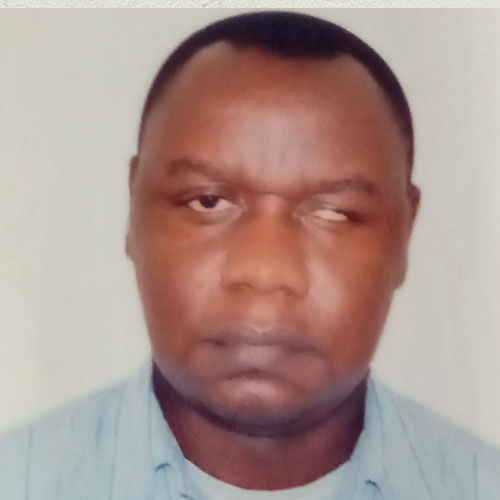
Moses Ntaro, MPH
Department: Disease Control and Environmental Health
PhD Topic: An Assessment of a Student led Intervention through a Community Based Education program in South Western Uganda
Description: Sanitation and hygiene has remained poor in most of the rural communities in Uganda and that most households lack access to improved sanitation facilities. Based on the context of critical shortage of health workers to spearhead sanitation improvements in rural communities, Moses’ work will examine the student interventions in terms of community-led total sanitation (CLTS) implementation, treatment fidelity, behavior change, CLTS outcomes, cost and effect of voice message follow on sustainability of health behavior.
Supervisors:
- Dr. John Ssempebwa, Department of Disease Control and Environmental Health, School of Public Health, Makerere University, Uganda
- Associate Professor Edgar Mulogo, Department of Community Health, Mbarara University of Science and Technology, Uganda.

Roselline Achola
Department: Community Health and Behavioural Sciences
PhD Topic: Decision making about Family Planning use among refugee and host populations in Adjumani district, Uganda.
Description: Though Family planning (FP) plays a crucial role in improving maternal and child health, its use is still low especially in developing countries like Uganda for both refugee and host populations as is the case in Adjumani district. In humanitarian situations, FP is not prioritized and yet is a critical aspect of the emergency response. For purpose of this study, I will focus on exploring decision-making processes for family planning use at individual, family, community and institutional levels. I will also establish factors associated with FP use and develop an intervention to increase uptake of FP among men and women in refugee and host communities in Adjumani district.
Supervisors:
- Prof Christopher Garimoi Orach, Department of Community Health and Behavioral Sciences, Makerere University School of Public Health, Kampala, Uganda.
- Prof Lynn Atuyambe, Department of Community Health and Behavioural Sciences, Makerere University School of Public Health, Kampala, Uganda.
- Dr Elizabeth Nabiwemba, Department of Community Health and Behavioural Sciences, Makerere University School of Public Health, Kampala, Uganda.
Email: rosellineac@gmail.com

